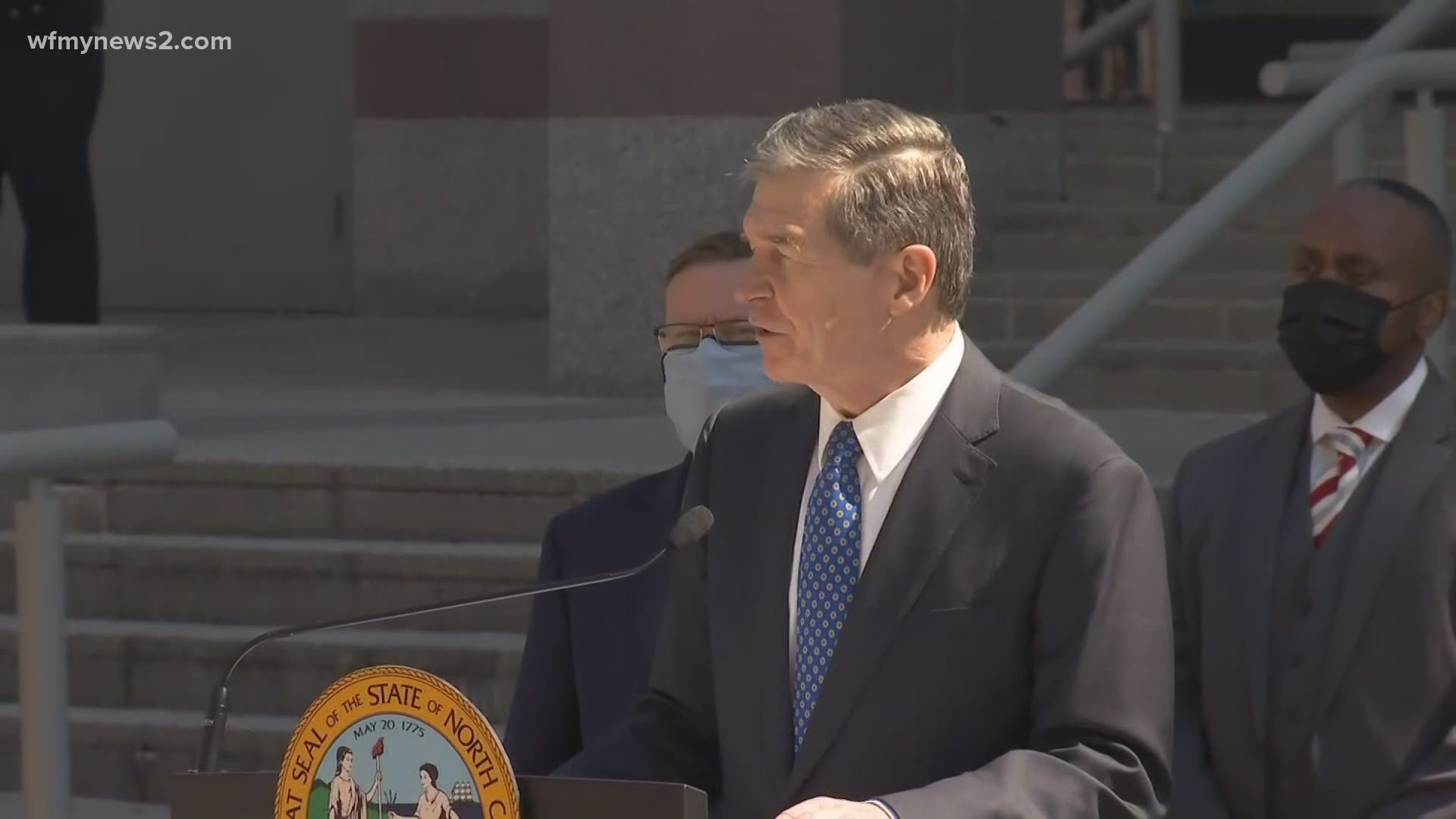RALEIGH, N.C. — Gov. Roy Cooper (D) and North Carolina General Assembly leaders announced a major agreement on school reopening legislation Wednesday.
“Today I’m pleased to announce an agreement to get students in school safely and surely,” Cooper said. The compromise agreement with N.C. lawmakers allows all elementary school students to operate under Plan A."
The governor said the drop in COVID-19 infections across the state is behind the push to begin getting students back in classrooms.
Under the legislation, all elementary schools must operate under Plan A, which is full in-person learning. Most elementary schools in the state are already doing this.
The biggest change is that local school districts will have the option for Plan A or Plan B/hybrid learning for middle and high school students. It's up to school boards to decide. If individual districts approve daily in-person classes under Plan A, they have to notify the state health department and provide a plan for how they're going to do it safely.
"For middle and high school, districts moving to Plan A are required to notify NCDHHS prior to moving to Plan A and describe that plan," Senate Leader Phil Berger (R) said. "The purpose here is to provide consultation. However, DHHS will not have the authority to veto a district's move to Plan A. The governor, though, will be given the authority to order a closure, restriction or reduction of operation if needed."
Senator Berger said the bill is a “fair compromise that returns many students to full-time in-person instruction.”
The bill is still moving through legislation, but once ratified, Cooper said it will go into effect sometime later this month or at the beginning of April.
"Dr. Mandy Cohen believes our metrics are heading in such a way that Plan A for middle and high school, three weeks from now, would be something they would be supportive of if a local school system wants that option," Gov. Cooper said.
Representative Jon Hardister said this is a long time coming.
"I think this is a step in the right direction I'm glad that we're moving toward a compromise," he stated. "Candidly it's not perfect. I'd rather us be at Plan A completely across the state but this is the nature of divided government, sometimes you have to compromise and in this case I think it's a good thing."
Here's a look at some of what the bill does:
- All elementary schools open under Plan A (five days of in-person learning)
- Local districts have the option of Plan A or B for middle and high schools
- Districts moving to Plan A for middle and high schools must notify the state health department before moving to that plan
- NCDHHS can't veto a district’s decision to move to Plan A.
- The governor has the authority to order a closure, restriction or reduction of operation within schools but can only do so on a district-by-district basis.
- Districts can also close a school or classroom in the case of an outbreak.
Last month, Cooper "strongly urged" all public schools to offer in-person learning as soon as possible. He then vetoed Senate Bill 37, which would force all public schools to offer in-person learning. Cooper said his two biggest issues with the bill were: social distancing and requiring schools to follow state and local health guidelines for COVID-19. An attempt to override Cooper's veto failed in the Senate.
On March 4, the State Board of Education ruled that all districts must offer in-person learning, and in the process, approved new COVID-19 safety guidelines, including mandatory face masks and social distancing for students from sixth grade through high school.

